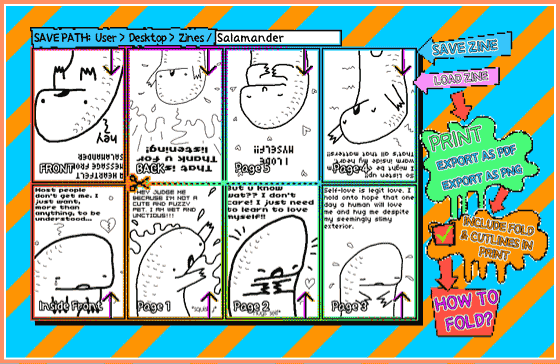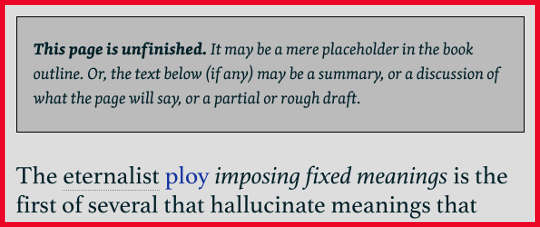‘We’re the kind of haphazard store that’s run by a shopkeeper/hoarder who won’t necessarily sell you something if he doesn’t want to…’
Continuing the recent theme of Roundups, I couldn’t resist checking in with
things magazine, which has been a rich source
of wonderful linkdumps for nearly two decades. There is also a popular
Tumblr attached and a print
journal that predates the blog.
I make many efforts to contact folks doing good work, but often can’t get a
reply. My blog is as underground as they get and I wonder if my e-mails or DMs
ever go anywhere. I was so glad to have this conversation with J—and I still
have many questions, so I hope our chats continue.
kicks: You’ve all been on the web since 2000. In a way, this isn’t that
special—blogging exploded around this time. But you kept going. What keeps you
blogging nineteen years later?
j: It’s a habit, as much as anything else (although the site is currently on
one of its temporary hiatuses). One of the original motivations for things was
as a store of interesting links that I could refer back to, relating to my
interests and those of contributors to what was once a print magazine.
But our link style is quite obtuse and it doesn’t really work as a searchable archive.
So it’s more of a collection of moods—both mine and the culture at large.
kicks: Ok, wait, go back—hiatus? Not sure what to make of that! Your post
today, for example,
is a mean one. A rich trove of links. That had to take some
hunting. Overall, I feel like your writings this year have been quite regular.
j: Yes, today’s post was a bit of a surprise. I’ve been building up a
collection of stuff these past few days. I had meant to stay away for longer.
Maybe our conversation inspired me.
kicks: You recently (briefly) mentioned the disappearance of what was once a
whole ‘blogosphere’, saying, “our own blogroll is home to many an abandoned
project…”
Even the blogroll itself has disappeared out there. Why do you think
that is? Perhaps because they became difficult to keep up? Perhaps there’s a
sense that linking isn’t worth doing any more unless it’s as a ‘like’ or a
‘friend’?
j: There was definitely a circularity to early blogging, links that were
shared and directions travelled together. One by one people have fallen by the
wayside. I guess it’s all there in the Wayback Machine, but occasionally I find
a ‘traditional’ style link blog that transcends the awful ‘like and subscribe’
ethos of today’s internet.
kicks: Mmm, ‘circularity’—yes, when you say this, I’m reminded of how certain
links would dominate all the blogs simultaneously—like when The Grey Album
came out. But I think ‘circularity’ applies also in describing the currents that
were flowing between these blogs.
It was just easier to get caught up in hopping
from blog to blog and finding dozens of fascinating links in a given day. And
not just the links—the blogs themselves were often the most fascinating finds.
(One blog I was really into at the time was Sharpeworld—a lot of transporting,
campy videos and links.)
Actually, let’s do this—if you were to envision a new future for blogging, a
kind of renaissance—what blogs (new or defunct) do you wish were at the heart
of this?
j: I loved Sharpeworld too. And Haddock.org, diskant.net, ilike.org.uk,
a.wholelottanothing.org, textism.com, slower.net, plasticbag.org and many more.
I don’t necessarily think there needs to be a new future for blogging though.
The heyday has passed, that’s all. Most forms of creative expression in most
mediums still exist somewhere for someone. They just have to adapt to a quieter
world. I check our traffic most days, out of habit—it’s not terribly impressive
by any standards and is on a long-term downward trend…
kicks: It seems like things has kept an eye on communities like MeFi,
Delicious and Tumblr over the years. Reading through your blog, I was reminded
of those years when mp3 blogs were exciting. These communities always seemed
like little underground holes or out-of-the-way clubs. Even Tumblr and Blogspot
felt that way, because blogs have a lot of individuality. Any new communities
springing up that excite you?
j: Not so much Delicious, because I always felt a bit late to that party,
but I’ve long loved MeFi (although that’s feeling a little rusty these days as
well). Tumblr I have a lot of affection for, although I still haven’t really
forgiven it for killing off fffffound. Communities have become necessarily more
niche—a forum here, a forum there—but there’s nothing I’d consider sticking
my head up above the parapet for.
kicks: You usually cover art—which still has an enormous presence on
Tumblr and Twitter and such—but are ‘net.art’ type works dead? Perhaps this
isn’t in your wheelhouse—are there still artists that work with hypertext or
is that just the domain of designers now?
j: ‘Net.art’ was a diversion and still exists, but it feels like the
interesting hypertext/digital work is coming out of graphic design these days,
not fine art. Art has moved on, whereas the applied arts have a much greater
sense and understanding of the power of nostalgia.
kicks: Do you mean like stuff you might find at CSS Design Awards? (Like,
I think of Erik Bernacchi’s site or Lynn Fisher’s
2017 site.) I think I have a theory about this.
Which is: I think it’s so much tougher to be subversive with HTML now. Much of
the original hypertext art messed with HTML frames and pop-up windows. I
remember some of these sites spawning lots of little pop-up windows and
orchestrating them. That would just never be possible today. Even autoplay and
MIDI is restricted now.
j: In terms of art I take your point about it being tough to be subversive
on the web—everyone’s online experiences are very tram-lined these days and
any deviation from expected standards of usability are massively frowned
upon—they’re either seen as offensive or even potentially dangerous so even the
slightest hint of a browser or data hijack are right out the window. The stakes
are much higher, I guess. Whatever, art moved on a while ago. The internet is a
vessel but no longer a medium.
One of the ongoing motivations for things is the idea of mental as well as
literal links, that sense of disparate things being related somehow, or a path
leading somewhere. That was the big dream of hypertext, which was supposed to be
a literary as well as an informational device.
The only place that still really
works are sites like Wikipedia or TVTropes, where you still get that sense of
burrowing down through layers and layers of information. I like this because it
mirrors thought processes, and the way in which you have to mentally rewind to
get back to where you started from. It drives me mad when publications add
self-referential hyperlinks that simply send you around a closed loop.
Must
check out TiddlyWiki…
kicks: things Magazine as a ‘personal store’ and a
‘habit’—these reasons for continuing have nothing to do with an audience. This is a
very common theme among those that I find still hypertexting.
There is a
growing number of TiddlyWiki users—like h0p3 at philosopher.life and Phil at
youneedastereo.com, my friend sphygm.us—and it takes real work to sift
through what they’re doing. They are dumping raw notes and drafts on the
Web. In some way, I think this is related to the ‘obtuse’ linking style you
use—dense, really requiring something of the reader.
Now that you are many years into your habit, how do you personally use this
‘store’?
j: Sadly it doesn’t really work like that. I never mastered the art of tagging stuff
so the tools on the site are of limited use. There’s an archive page I built a
decade ago when I knew how to do that sort of thing
but it would be great to have
some kind of random access button the front page. Right now, we’re the kind of
haphazard store that’s run by a shopkeeper/hoarder who won’t necessarily sell
you something if he doesn’t want to…
kicks: This is an amusing reply to me—I’m of two minds about seeing things
as ‘haphazard’. It’s deceptive—the blog layout itself is quite the opposite—neat
and crisp (and this is true of your Tumblr, too) and even a lot of the
visuals that you snip are geometric. One’s perception immediately connects it
with a museum or card catalog.
Yet, I see what you’re saying. You often will spill twenty different links in a
paragraph, sometimes with very little assistance as to what is beneath that
link. And I’ve seen posts where you dump a pile of random Tumblrs with short
cryptic titles in a long run-on sentence. You switch topics mid-paragraph. A
paragraph will go from a cohesive thought into a kind of, yes, ‘haphazard’ link
poem.
To many of these TiddlyWiki users, the wiki acts as a model of themselves—not
a straight download, of course, but a pretty thorough map of their thinking and
personality. things is not this, perhaps more like a construct of Borges—where
you have the external appearance of a literate, orderly castle which is much
closer to a labyrinth of madness within. So, if this is my picture of
things—how does this compare with your initial intentions for it? How does it compare
with where you think it might end up as?
j: ‘Link Poem’ is a good description of what we do. things was always a work
in progress, both as a magazine and then as a website. It has calcified slightly
from its early days when we’d also post longer pieces by other people (they’re
all buried there somewhere)—maybe that will one day return. There were never
any intentions, save perhaps to boost the profile of the magazine and help sell
copies (that didn’t work). Long term, I just don’t know.

 C’est n’est
pas une h0p3.)
C’est n’est
pas une h0p3.)





 Okay, okay! I concede: you are not a tootytoot!
Okay, okay! I concede: you are not a tootytoot!








Reply: Now Pages
The most inspiring ‘now’ page I’ve seen recently is Chris Burnett’s. It’s very simple—but I like that he rolls up his previous ‘now’ entries into a timeline of his life. What an ingenious improvement.
I’ve seen many ‘now’ pages that keep their history around, but many of these pages are styled more like a checklist. Amit Gawande’s actually leaves crossed off items at the bottom—also like a kind of timeline.
Of course, the ultimate timeline in this vein is Phil Gyford’s. Nice work on your page!